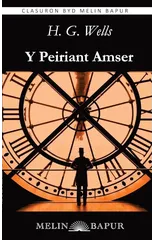In 1937, H. G. Wells proposed a predigital, freely available World Encyclopedia to represent a civilization-saving World Brain. In a series of talks and essays in 1937, H. G. Wells proselytized for what he called a "World Brain," as manifested in a World Encyclopedia--a repository of scientifically established knowledge--that would spread enlightenment around the world and lead to world peace. Wells, known to readers today as the author of The War of the Worlds and other science fiction classics, was imagining something like a predigital Wikipedia. The World Encyclopedia would provide a summary of verified reality (in about forty volumes); it would be widely available, free of copyright, and utilize the latest technology. Of course, as Bruce Sterling points out in the foreword to this edition of Wells's work, the World Brain didn't happen; the internet did. And yet, Wells anticipated aspects of the internet, envisioning the World Brain as a technical system of networked knowledge (in Sterling's words, a "hypothetical super-gadget"). Wells's optimism about the power of information might strike readers today as naïvely utopian, but possibly also inspirational.
H.G. Wells
H.G. Wells was a prolific English writer best known for his science fiction novels. His most notable works include "The War of the Worlds," "The Time Machine," and "The Invisible Man." Wells' writing style was characterized by his imaginative storytelling, social commentary, and exploration of scientific concepts. He is often credited with popularizing the science fiction genre and influencing future writers in the field. "The War of the Worlds" remains his most famous work, depicting a Martian invasion of Earth and exploring themes of imperialism and the resilience of humanity. Wells' contributions to literature have had a lasting impact on the genre of science fiction and continue to be celebrated to this day.






